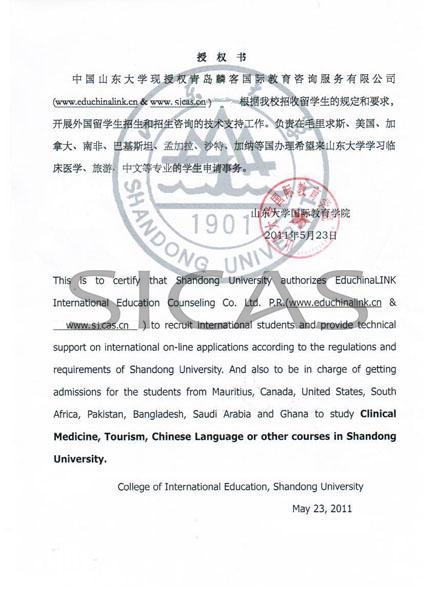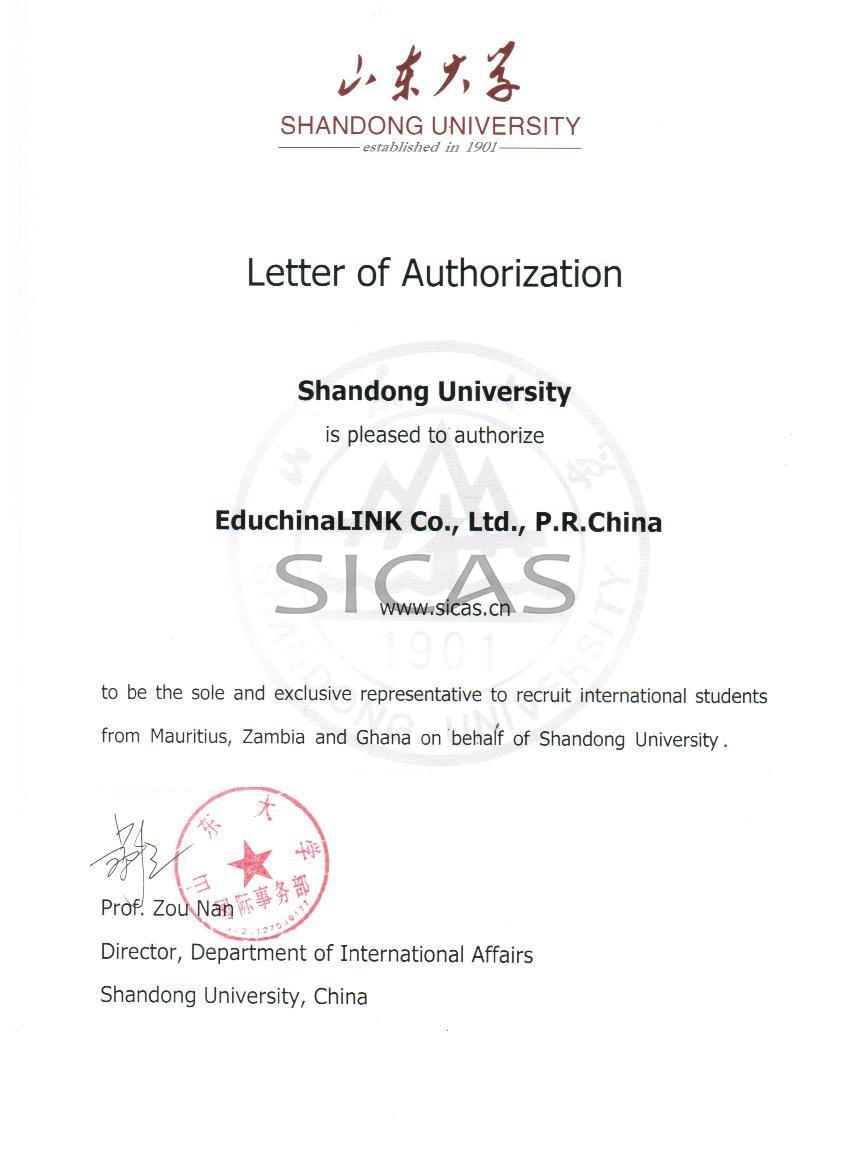Why choose to study this program?
This international master program provides an intensive,interdisciplinary courses of study for professionals who wish to acquire new knowledge and skill in international relation.Student will have solid background in international relation theory; master the rules and transaction of international relations, own broad view on it.
Main Courses and Credits
Candidates will be required to complete 30 modular credits. Below are the main courses and core courses description:
· Introduction to International Politics
· Comparative Politics
· International Relations Theory
· Foreign Policy Analysis
· Chinese Language
· Diplomacy of Contemporary China
· Sino-US Relations and the US Foreign Policy
· European International Relations
· East Asian International Relations
· Chinese Survey
Core courses description:
1. Introduction to International Politics
This course will begin with basic elements of the study of international politics: actors, goals, means, consequences of state interactions and provides students with the background and conceptual tools they need to understand contemporary international politics. The course will introduce students to a wide range of issues, including the workings of the state system, the causes of international conflict, and international economic relations. Students will be introduced to the literature in a broad way, to make them familiar with the main theoretical traditions in the field.
2. Comparative Politics
This course aims to familiarize students with the basic concepts used in the study of comparative politics. Through the use of technology-mediated learning, we shall examine conceptual issues such as state building, governance, democratic transition, diverse forms of representation, election systems, political culture as well as a comparative look at different types of government institutions. Through this course students will learn to implement comparative approaches and to become better able to examine current events in a more analytical and informed fashion.
3. International Relations Theory
This course deals with contemporary International Relations Theory which is deeply divided into two large camps: rationalist theories (mainstream) and reflextivist theories (non‐mainstream). It is the goal of the course to introduce students systematically into the theory building of international relations by outlining the developments of different theory approaches, analyzing their basic ontological, epistemological and methodological assumptions, and testing their validity through diverse case studies.
4. Foreign Policy Analysis
The objective of this course (FPA) is to introduce students to theories of foreign policy analysis, using a levels of analysis approach, and then to apply that theoretical framework in an analysis of case studies drawn primarily from the field of china’s foreign policy. The course provides a survey of theoretical perspectives on the sources of foreign policy organized by level of analysis, moving from individual level approaches to decision-groups, from domestic level approaches to state attributes and systemic theories.
5. Diplomacy of Contemporary China
This course is designed to survey major topics of the foreign policy of the People’s Republic of China (PRC). It begins with a brief introduction of a historical review of China’s role of the pre-modern world. The main body of the courses includes: (1) the development of Chinese foreign policy after the founding of the PRC, (2)China’s foreign policy toward different kinds of countries or on different issues, (3) the domestic determinants and foreign policy decision-making in China, (4) current issues in and future of China’s foreign policy. The course aims to acquaint students with knowledge of China’s involvement in world affairs in historical and contemporary perspectives and train them with an analytical understanding of the dynamics of China’s foreign policy.
6. Sino-US Relations and the US Foreign Policy
This course explores the changing relations between PRC and the United States. One is the world’s sole surviving super-power, the other the world’s most populous and largest developing country. Following the chronological line, the couse will focus on the ways in which China and America were involved with each other on political, military, economic, and cultural levels. Special emphasis will be placed on the significance of mutual perception in shaping mutual behavior and policy.
7. European International Relations
The aim of the course is to introduce the students to the history of Europe since 1450, and to European integration theories and practices since 1945. The course is based on reading and the theory and practice of the construction of Europe is analysed within the framework of the theory and practice of international relations, of modernization and globalization. The course concentrates on rethinking the role of the federalist ideas in the construction of Europe, and in the emergence of a democratic international society. Subsequently a number of important contemporary problematiques facing the processes of European economic integration will be presented and analyzed.
8. East Asian International Relations
International relations course begins with a discussion of what constitutes the Asia Pacific region and examines the impact of Western and Japanese colonization on the region. It then moves on to the Cold War and post-Cold war periods tracing the changing geo-political trajectory of the nations that comprise the region. It then examines a range of bilateral relations covering some of the major powers in the region such as China, Japan, India and the United States. Following this, it moves to the realm of regional and multilateral processes, analysing their economic and political significance for regional and world politics.
Fees
· Tuition fee: 32,000 Chinese Yuan per year
· Application Fee: 410 Chinese Yuan per student
· Accommodation Fee: 40—75 Yuan per day per room
· Insurance fee: 600 Chinese Yuan per year per student (the University assumes 400 Chinese Yuan and student 200 Chinese Yuan)
· The daily meal expense is about 10-20 Yuan for dining at the students’ dining hall.An alternative is to cook by your in the neat and convenient public kitchen.
Career Development
Through this program, the students will grasp solid and systematic theories of international economics and trade, master the dynamics of international business, capable of applying comprehensive knowledge and modern technical tools to analyze concrete cases in the theories and practices of this field and have the strong ability of policy analysis and business operation. They will be familiar with the economic environment and enterprises in the whold world and be able to solve problems in creative ways. They will become management and economic talents in foreign trade companies.
Diploma Awarded
Master Degree of Economics













